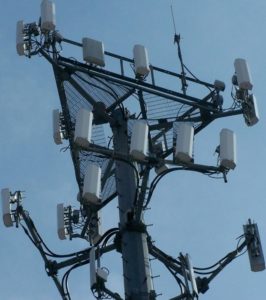5G: Striking a balance between resilience and risk
On Friday, November 1, 2019, China unveiled the world’s largest 5G network in 50 cities, including Shanghai and Beijing. China Mobile and other telecom companies now offer 5G plans, starting at 18USD for 30 gigabytes per month, however, many companies are charging by speed rather than by month. It is estimated that by 2020 7% of China’s population will use 5G, and the country hopes to continue to expand its coverage.

While China’s quick rollout of 5G seems impressive – it was released a month before the scheduled date – officials in the United States remain cautious about the new technology. Politicians have spoken out against the use of Chinese 5G technology, claiming it could lead to spying and sabotage important military technology. The Department of Homeland Security has stated that the use of 5G networks may allow malicious actors to target vulnerabilities in the supply chain and intercept US data that travels overseas, threatening national security and harming the resilience of American information systems. Additionally, some believe 5G networks may cause users a health risk. The National Institute of Health released a study of the effects of high exposure to radio frequency radiation on rats, finding that there was a high correlation between cancerous heart tumors and radiation exposure in male rats. There was also some correlation between radiation exposure and tumors in the adrenal glands and brains of the male rats. However, the study exposed the rats 2G and 3G frequencies over their entire bodies. This cannot be compared directly to humans, as they will only experience the radiation in localized areas, such as the ear or the skin near pant pockets. Furthermore, newer technologies use different methods of cell phone signal modulation, so it is unclear whether the findings of this study would apply to 5G. Other concerns relate to the cosmetics of 5G cell towers: since 5G requires smaller, more consolidated cells, there is also a worry that the towers will overcrowd the horizon, skewing the aesthetic appeal of many cities.
Despite its risks, 5G networks boasts a number of positive attributes that may strengthen the resilience of the areas in which it provides coverage. Data transmission on a 5G network offers incredibly rapid speed, up to 100 times more than that on a 4G network. This presents a unique strength in disaster management. As Robert Dew, a Senior Technologist Advisor in the Emergency Communications Division of CISA explained at the Department of Homeland Security’s “Securing Mobile Network Infrastructure,” 5G networks allow the government to harness higher speeds in the case of an emergency. For example, if there was a bomb threat, the government could send in bomb-sweeping technology into the endangered area that will transmit data back to officials in real time in order to locate the issue without endangering human lives. This capability will also help the government stay in contact with citizens in case of a large scale operation, such as a mass evacuation. Striking a balance between managing vulnerabilities and advancing resilience through the development of 5G technology will be key to its successful roll out. Meeting this challenge will require policy makers, technical experts, and business leaders to work together towards a set of common resilience-building goals.
Sources and Additional Reading
CNN Business – China just launched the world’s largest 5G network
Washington Post – As China switches on 5G ‘revolution,’ the US is struggling to catch up
BBC News – China rolls out ‘one of the world’s largest’ 5G networks
CNET – 5G brings up questions of cybersecurity vulnerabilities
Department of Homeland Security – 5G Adoption in the United States
The National Institute of Health – High exposure to radio frequency radiation associated with cancer in male rats
Inverse – Does 5G Internet Really Give You Cancer? Here’s What We Know and Don’t Know
Alvarez Technology Group – The Pros and Cons of 5G
Cell Tower Lease Experts – Pros & Cons: How WIll 5G Impact Your City?
Business Insider – 5G is being used to perform remote surgery from thousands of miles away, and it could transform the healthcare industry
